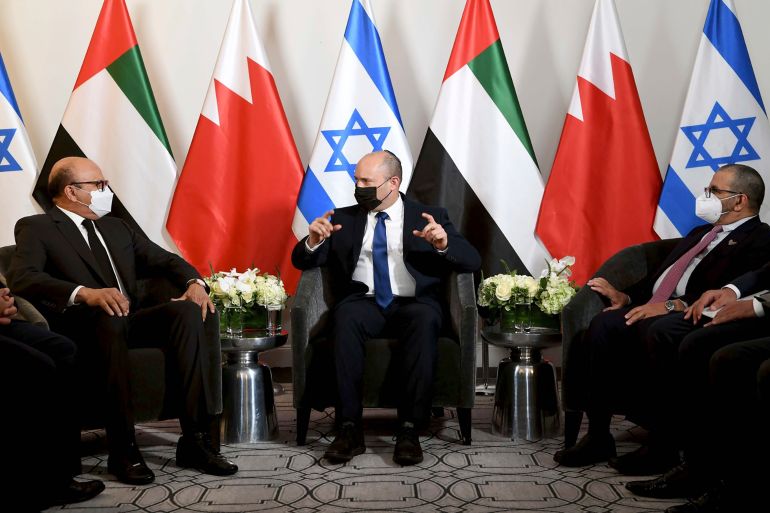This week, the intricate dance between Israel and its Arab neighbors has unfolded with a mix of military escalation, diplomatic friction, and uneasy alliances, painting a vivid picture of a region on edge. As of April 2, 2025, the Middle East is grappling with fresh wounds and old rivalries, from Gaza’s battlegrounds to Beirut’s battered suburbs. Here’s a snapshot of the latest developments driving this high-stakes saga.
Gaza: The Humanitarian Crisis Deepens Israel’s military campaign in Gaza has surged to new intensity, with Defense Minister Israel Katz announcing on April 2 plans to seize “large areas” for security zones, as reported by the BBC. The offensive has claimed at least 53 lives since dawn, pushing the death toll beyond 1,100 since a ceasefire crumbled last month. Al Jazeera notes a 31-day blockade has left Gaza on the brink of famine, with the Palestinian Civil Defence sounding the alarm over dwindling supplies.
Arab reactions have been swift and sharp. Saudi Arabia slammed an Israeli strike on a UNRWA clinic in Jabalia as a breach of international law, a sentiment echoed by Jordan. The UAE, despite its 2020 normalization with Israel via the Abraham Accords, faces growing scrutiny—posts on X suggest it’s pressuring Egypt to take in 700,000 Gaza refugees, a claim unverified but indicative of regional tensions. Egypt, staunchly opposed to mass displacement, insists on a two-state solution, a stance shared by much of the Arab League.
Jerusalem: Al-Aqsa Ignites Outrage.
On April 2, Israel’s National Security Minister Itamar Ben Gvir visited the Al-Aqsa Mosque compound, a move branded as incendiary by Jordan, Saudi Arabia, and Hamas. Jordan, which oversees the site, called it a violation of the status quo, while Saudi Arabia’s condemnation reflects a broader Arab consensus against Israeli actions in Jerusalem. This provocation threatens to unravel diplomatic threads, especially with Gulf states navigating public fury over their ties with Israel.
Lebanon: A Ceasefire Tested.
Israel’s reach extended north this week, with a March 28 airstrike on Beirut’s southern suburbs—the first since a November truce with Hezbollah—targeting a drone facility, per Reuters. The attack, a retaliation for rocket fire from Lebanon, killed several, including a Hezbollah official, and has reignited fears of a full-scale conflict. Lebanon’s President Joseph Aoun decried it as a truce violation, a view France’s Emmanuel Macron called “unacceptable.”
Arab states are watching closely. While Hezbollah’s Iranian backing complicates Arab unity, the strike has drawn sympathy for Lebanon’s plight, with Saudi Arabia and others wary of a wider war destabilizing the region. The incident tests the limits of U.S.-brokered peace efforts, leaving Arab capitals in a delicate balancing act.
Syria: Israel’s Quiet Expansion
In Syria, Israel’s footprint is growing more permanent. The New York Times reported on March 31 that Israel has fortified outposts beyond the 1973 buffer zone, hinting at a long-term presence. Agriculture Minister Avi Dichter’s proposal to employ Syrian Druze as farmhands on occupied land adds an economic twist to the military moves. Arab responses have been muted so far, but Syria’s allies, like Iraq, may soon weigh in as Israel’s actions challenge post-war reconstruction efforts.
The Arab Dilemma: Solidarity or Strategy?
The week reveals a fractured Arab stance. Saudi Arabia and Jordan lead the charge in condemning Israel, yet the UAE and Bahrain—Accords signatories—face accusations of complicity amid their silence or muted criticism. Posts on X highlight this divide, with some claiming the UAE is abetting Israel’s Gaza plans, though evidence remains anecdotal. Meanwhile, Egypt and Qatar push for mediation, their roles as ceasefire brokers tested by Israel’s unrelenting campaign.
What’s Next?
This week’s events lay bare a Middle East at a tipping point. Israel’s bold moves—in Gaza, Lebanon, and Syria—challenge Arab unity and strain the Abraham Accords, while Gaza’s humanitarian plight demands action. Will Arab states rally behind a collective response, or will strategic interests—like Saudi Arabia’s U.S. ties or the UAE’s economic stakes—prevail? For now, the region oscillates between confrontation and cautious diplomacy, with Israel’s next steps poised to shape the narrative. As the dust settles, one thing is certain: the Israel-Arab story remains a volatile, unfolding epic.







